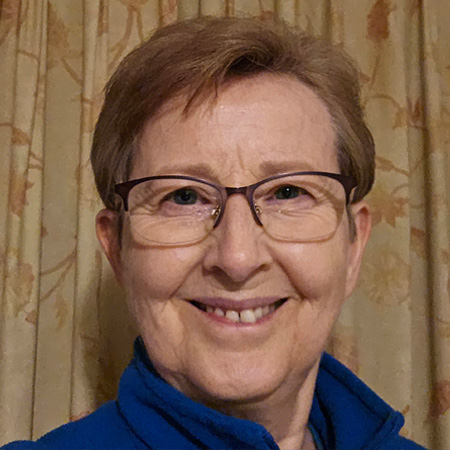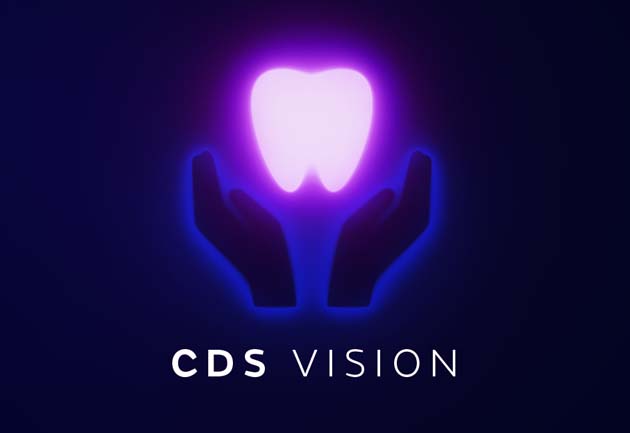The CDS fills a gap between secondary care and high street dentistry. We are here for those patients who, for one reason or another, cannot be treated in the GDS, but do not need to be seen in the hospital system. We provide specialised treatment and fill the gap in more remote areas where there may not be a dental hospital within easy travelling distance. In addition, we get to know our long-term special needs patients very well and can advocate for them, if need be, with other healthcare professionals.
We work with wider healthcare colleagues in a variety of ways. For our patients with complex medical histories, we liaise with their doctors and consultants to ensure we are able to provide the necessary dental treatment safely. For example this may be carrying out an extraction for a haemophiliac patient soon after they have received their regular Factor 8 injection. In addition, the consultant may have prescribed tranexamic acid for the patient to take before and after the operation to help control bleeding. Effective cross-team working is therefore often crucial for delivering care for many of our patients.
CDS dentists can also play an important role in the safeguarding of its patients and are responsible for ensuring more than just their oral health. For those of us working in health centres, there can be interaction between the dental department and health visitors or district nurses, either because we have spotted a non-dental issue which concerns us, or they have noticed a patient has an urgent dental problem. This can be particularly useful with paediatric patients on the at-risk register.
Most CDS services provide comprehensive dental treatment under general anaesthetic for adult special needs patients. Often these patients have been unable to accept other medical interventions, and it is common for patients having dental treatment under general anaesthetic to undergo other treatment at the same time. This can include blood tests, cervical smears, impacted ear wax removal and almost anything else their GP has not been able to achieve.
There is still work to be done in raising the profile of the CDS within healthcare, however. I think that the anaesthetists we work with regularly have a reasonably good understanding of our role, especially those providing general anaesthetic for our adult special needs patients.
"As for the wider healthcare groups, many GPs do not know we exist, let alone what we do. Unless healthcare staff have come into contact with the CDS, they sometimes think we are still the old school dental service."
It is within the CDS that we carry out the majority of extractions under general anaesthetic for children, we see the patients with the most severe special needs who cannot access high street dentistry, and we help in the dental treatment of medically compromised patients. Some services are commissioned to provide out of hours emergency care.
Our vulnerable patients would suffer if the CDS was not around. Some of them will come in anxious and often tearful, and it is a great feeling to be able to put them at their ease and accept treatment, with or without sedation. To see them leave, happy and smiling, treatment all done more easily than they had expected, gives me tremendous job satisfaction.
Now versus then
I have been an accredited representative for thirty years, all that time attending the meetings of the North West Region Accredited Representative Group and for the last few years chairing those meetings. When I first became a rep, the issues for discussion were more related to terms and conditions. There are still some ongoing concerns with terms and conditions, but the typical concerns raised now focus increasingly on staffing difficulties and problems with IT. Especially since the pandemic there has also been a push to meet key performance indicators for paediatric extractions and anxious adults at the expense of our routine special needs patients, who are waiting longer for check-ups.
We are being asked to do more with less. There is pressure from our commissioners to meet the key performance indicators placed on our contracts, plus pressure from our trusts to make cost improvement measures.
Now when triaging referrals to our service we have to be very strict and reject cases we might have accepted a few years ago because there is no longer the capacity in the system to meet the demand. As the GDS has found the NHS contract less and less tenable, people are struggling to find an NHS dentist and though we feel very sorry for people who cannot access an NHS GDP, we just do not have the staff and resources to take them on. We cannot be the safety net service.
Opportunities I see for the future of the CDS and its integration
Until the recent 6% pay increase we suffered over a decade of sub-inflation pay increases and cuts in our budgets. Despite this, the CDS is still staffed by skilled and totally dedicated dentists, dental therapists, dental nurses and receptionists. We are very keen to expand and improve what we are able to offer to the NHS.
There could be opportunities for closer working with the GDS, perhaps offering shared care. Some of our more able special needs patients are capable of accepting check-ups from a sympathetic GDP, but may need to return to the CDS if they need treatment.
There could also be opportunities to work more closely with the dental hospitals, perhaps with consultants coming into the community for a monthly clinic, seeing patients who would otherwise have to be referred into hospital. This might also work with trainees on the specialist pathways coming out to community clinics to gain experience with our patients. Those trainees might even be CDS dentists undertaking specialist training. If more funding were made available, the CDS might be able to employ consultants, which would be especially useful in more rural areas where access to a dental hospital consultant is problematic.
CDS Week gives us a great opportunity to showcase what we do and tell the world what we could do even better with a little more collaboration and funding.


